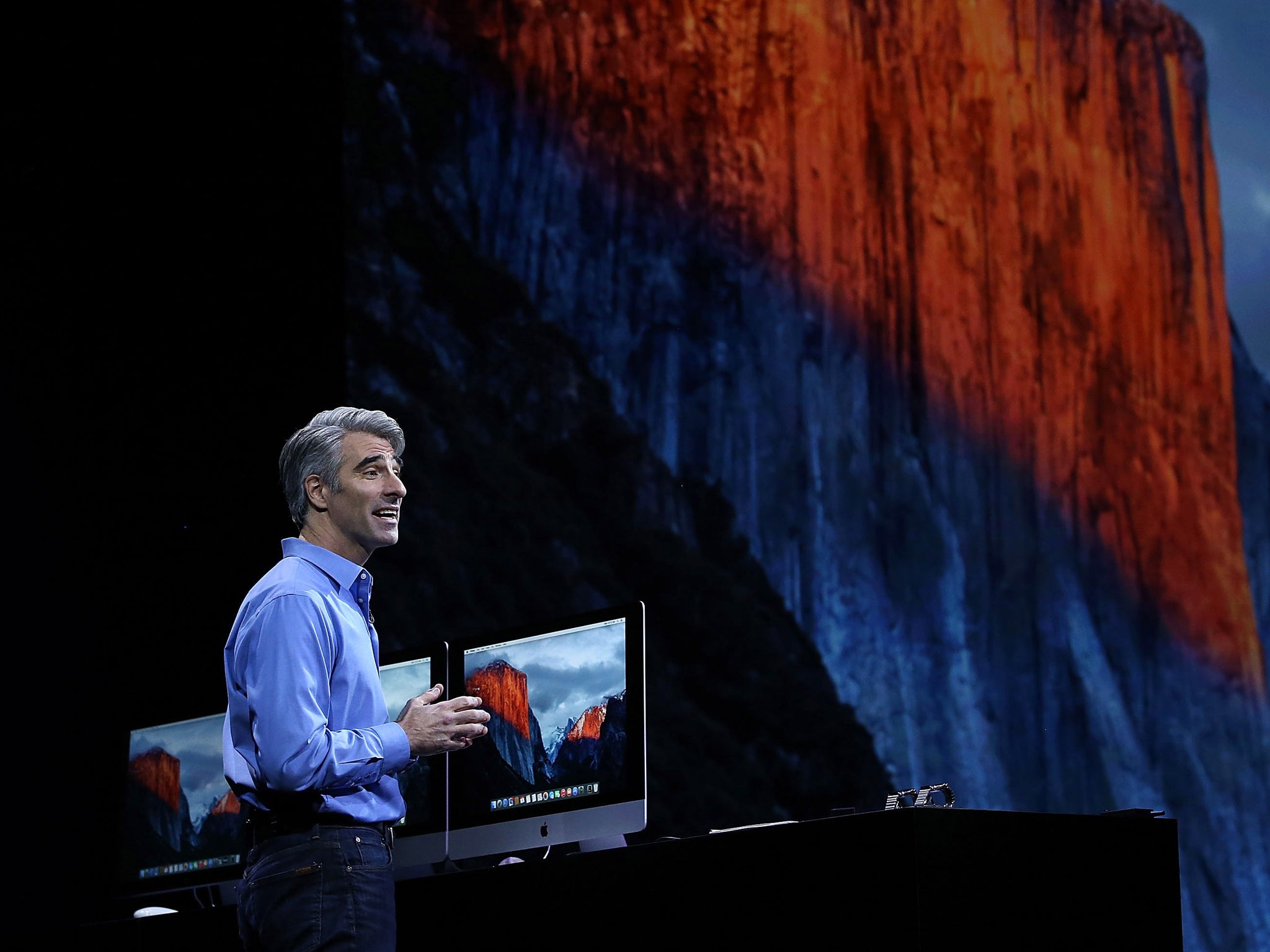Mac OS X El Capitan: Apple releases new desktop operating system, focuses on experience and stability
Focused on search tools, the new operating system is a tightened-up version of the existing one, Yosemite

Your support helps us to tell the story
From reproductive rights to climate change to Big Tech, The Independent is on the ground when the story is developing. Whether it's investigating the financials of Elon Musk's pro-Trump PAC or producing our latest documentary, 'The A Word', which shines a light on the American women fighting for reproductive rights, we know how important it is to parse out the facts from the messaging.
At such a critical moment in US history, we need reporters on the ground. Your donation allows us to keep sending journalists to speak to both sides of the story.
The Independent is trusted by Americans across the entire political spectrum. And unlike many other quality news outlets, we choose not to lock Americans out of our reporting and analysis with paywalls. We believe quality journalism should be available to everyone, paid for by those who can afford it.
Your support makes all the difference.Apple has revealed the new version of its desktop operating system: Mac OS X El Capitan.
The update is focused on improving the experience and stability of the software. Some of those new features improve the performance of the system by up to 10 times, according to Apple.
The name El Capitan is part of Apple’s naming system for operating systems, which sees them take the names of California landmarks. El Capitan is a mountain in Yosemite, the name of the previous version — thought to have been chosen because the new version isn’t so much a new OS as an improvement on the existing one.
The new operating system will be made available to developers shortly, Apple said. The public will be able to get a beta version in July, before the full version is launched in autumn.
The new operating system features updates to Siri, that allows it to store special pinned websites and updates to Mail, which allows it to intelligently search through information.
But the biggest update was perhaps that to the Spotlight search tool, which allows user to search for information throughout the system. That allows people to ask the search tool for information like "documents I worked on in June", or "emails from Eddy that I missed", and the computer will understand those commands and bring up the required information.
Away from the more visible updates, the company also brought features from iOS that can rapidly improve the performance of Mac computers, Apple said. That includes moving Metal — Apple's special graphics system developed for iOS — onto the desktop and laptop computers.
Apple says 55 percent of Mac users have upgraded to Yosemite, much better than the adoption for Microsoft's Windows 8.1.
Apple has released two updates under the California scheme. The 2013 update was called Mavericks, the name of a surfing area in the San Francisco Bay area. Last year's version was called Yosemite.
Before, Apple named its Mac systems after big cats, including Lion and Tiger, but the company was running out of animals. Apple now makes Mac updates available for free.
The new Mac system will be more formally known as OS X 10.11, as it's the 11th update to a system adapted from the NeXT operating system that co-founder Steve Jobs brought to Apple when he returned in 1997 after an exile.
Additional reported by Associated Press
Join our commenting forum
Join thought-provoking conversations, follow other Independent readers and see their replies
Comments